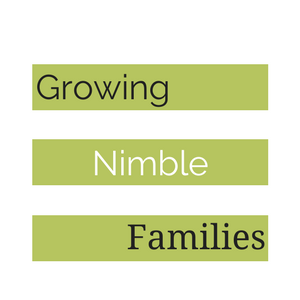With school out in the UK the teaching unions have their annual conferences and what has come up this year but the discussion “Should children have more time for play?”
Although it sounds like a silly question there is an awful lot of testing going on earlier and earlier with selection tests and preparing for the test. Children are sitting down and the focus is not on them experiencing learning actively but being able to pass the test satisfactorily.
While I think that testing is a good idea, in principle, as it gives baselines and data you can measure which is an effective way to see how a child is progressing. Testing mustn’t be so pervasive that it determines the type of activities your child does in early childhood settings.
Neither does testing provide an ultimate answer- just how well they performed on the test that day, at that time. Tomorrows test in the same way may produce worse or better results and it’s not just the weather or their mood that are important factors but at this tender age kids don’t learn in a linear fashion but stops and starts; bursts and stalls and sometimes they just tick along.
Testing results should be a more comprehensive assessment than it is although I don’t know how that could be done without it becoming cumbersome for the teachers. All they want to do is teach for goodness sake!
But testing in it’s current form – nope I don’t agree for the little ones.
So yes, there should be more time for play- meaningful play. This article by the Guardian newspaper focuses on changing the year of kids joining school from 4 to 6 or 7. Why? to have more play opportunities?
They say that starting later would be better as ” ….this would give them more time to learn essential lessons for a successful life through playing, which helps children learn to be sociable, make friends, share, negotiate and sort out arguments – the tools they will need for life, not just school.”
Couldn’t agree more but how do you do this in a busy world when there are so many pulls and pressure.
How?
- You have to socialise yourself and your child and enjoy play dates where they can learn cooperation and negotiation.
- You join playgroups or church groups.
- Go to parks and talk to other parents. Let your kids mix and see if they can work out differences, with you watching and intervening as needed. These provide excellent opportunities to teach after the event as well.
- Find friends online and in your area. There are many different forums for all the different types of parent. What do your friends recommend? Try here and here. Arrange meet ups or start your own play group.
- Instead of being a helicopter parent try to allow your child to lead. Naturally within sensible boundaries.
- Provide ample opportunities for unstructured play. I can’t emphasis this point enough. Leave things out that inspire them to do what they want with it. E.g. empty boxes, sheets, kitchen equipment, old clothes, dressing up clothes. You’ll be surprised at their creativity. It may take them a while but it will come!
- Look into teaching methods at your preschools and nurseries. Do they fit into your philosophy or your child’s learning style. Learn about Montessori, Waldorf, Charlotte Mason as a start.
- Put away flashing, battery toys that are all singing and dancing from time to time. Box them all up and stash them one night. Bring them out when you want them out rather than having them in the toy box all the time.
- Leave books out everywhere. They will look at them and bring them to you.
- Build flexible time into their schedule so you both have downtime together side by side with you working on a project and they on a project. How else will they learn how to do things without you?
- Do some activities together. If you’re stuck for ideas try the daily email of activities. Good starting points for mostly open-ended play.
As Alfred Adler states “Play is a child’s work and this is not a trivial pursuit.”
In my opinion, the most important thing about play is about the balance of stimulation by us the parent and how much time your child spends experimenting and experiencing play for themselves. A point illustrated by Kathy the parenting coach in the recent podcast by the Manic Mommies.
How is your balance?
Time to evaluate your child’s play life…
***What play opportunities do you create for your child? How do you manage to keep the balance of structured and unstructured activities? ***
I’d love to hear your ideas. Leave your comments below.











[…] sure you take time to play with your kids now before they’re too grown up. Melitsa presents More time for play posted at […]